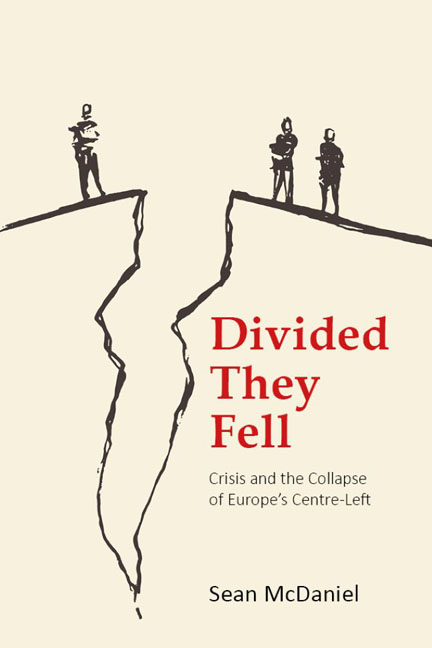Book contents
- Frontmatter
- Contents
- List of abbreviations
- Acknowledgements
- Introduction
- 1 Neoliberal convergence and the politics of austerity: is there still space for the centre-left?
- 2 Struggling to win: centre-left electoral decline and the strategic dilemma of the Third Way
- 3 Developing a strategy: the internal dynamics of the centre-left’s response to the crisis of neoliberalism
- 4 Delivering the strategy: how the centre-left sought to communicate a response to the crisis of neoliberalism
- 5 Stagnation, failure and fragmentation: the rise of the radical left
- 6 Post-pandemic politics: how are the centre-left rebuilding?
- Conclusion
- Appendix: interviewees and interview locations
- Notes
- References
- Index
4 - Delivering the strategy: how the centre-left sought to communicate a response to the crisis of neoliberalism
Published online by Cambridge University Press: 23 January 2024
- Frontmatter
- Contents
- List of abbreviations
- Acknowledgements
- Introduction
- 1 Neoliberal convergence and the politics of austerity: is there still space for the centre-left?
- 2 Struggling to win: centre-left electoral decline and the strategic dilemma of the Third Way
- 3 Developing a strategy: the internal dynamics of the centre-left’s response to the crisis of neoliberalism
- 4 Delivering the strategy: how the centre-left sought to communicate a response to the crisis of neoliberalism
- 5 Stagnation, failure and fragmentation: the rise of the radical left
- 6 Post-pandemic politics: how are the centre-left rebuilding?
- Conclusion
- Appendix: interviewees and interview locations
- Notes
- References
- Index
Summary
We have so far focused on the internal dynamics of Labour and the PS. Political strategies do not, however, exist solely behind closed doors. As parties seek to communicate with electorates, they begin to respond to different sets of pressures. As well as the ideas of key advisors or the need to respond to internal factional quarrels, parties must respond to the emerging political issues of the day, including their rivals’ own discourse or media pressure. These pressures influence party actors to adapt the ways they seek to communicate their ideas to the voting public. As such, in this chapter we turn our attention to how Labour and the PS sought to translate their internal ideas and discourses into forms of public communication.
The reputational, ideational and strategic path dependencies influencing the party's internal discussions, examined in Chapter 3, have shaped the discourses employed by the two parties publicly in important ways. In this chapter, we see that after initially pursuing more critical conceptions of the crisis, both parties began to operate within dominant neoliberal frameworks of understanding the crisis and how to resolve it. Prior ideological and programmatic commitments within the parties shaped and ultimately constrained the ability and desire of leading actors to engage with the crisis of neoliberalism more critically. Making the case for a post-neoliberal alternative economic model was seen variously as unachievable and undesirable from a political-electoral standpoint. A major element of this issue stems from the politics of austerity. As a consequence of deeply held programmatic and strategic ideas within the parties, both evaded the opportunity to set out an alternative to austerity. Instead, as a consequence of the perceived need to reassure electorates, EU partners and market forces, both ultimately embraced a form of austerity that accepted both the economic rationale for fiscal consolidation and normative claims around the nature of consolidation. Analysis of documentary material and interview data is again divided into an examination of how party actors sought to define the nature of the crisis itself, how they discussed what a post-neoliberal growth model might look like and how they grappled with the politics of austerity. The chapter begins by looking at the case of Labour under Miliband, then analyses the case of the Hollande campaign and PS administration.
- Type
- Chapter
- Information
- Divided They FellCrisis and the Collapse of Europe's Centre-Left, pp. 85 - 101Publisher: Agenda PublishingPrint publication year: 2023



